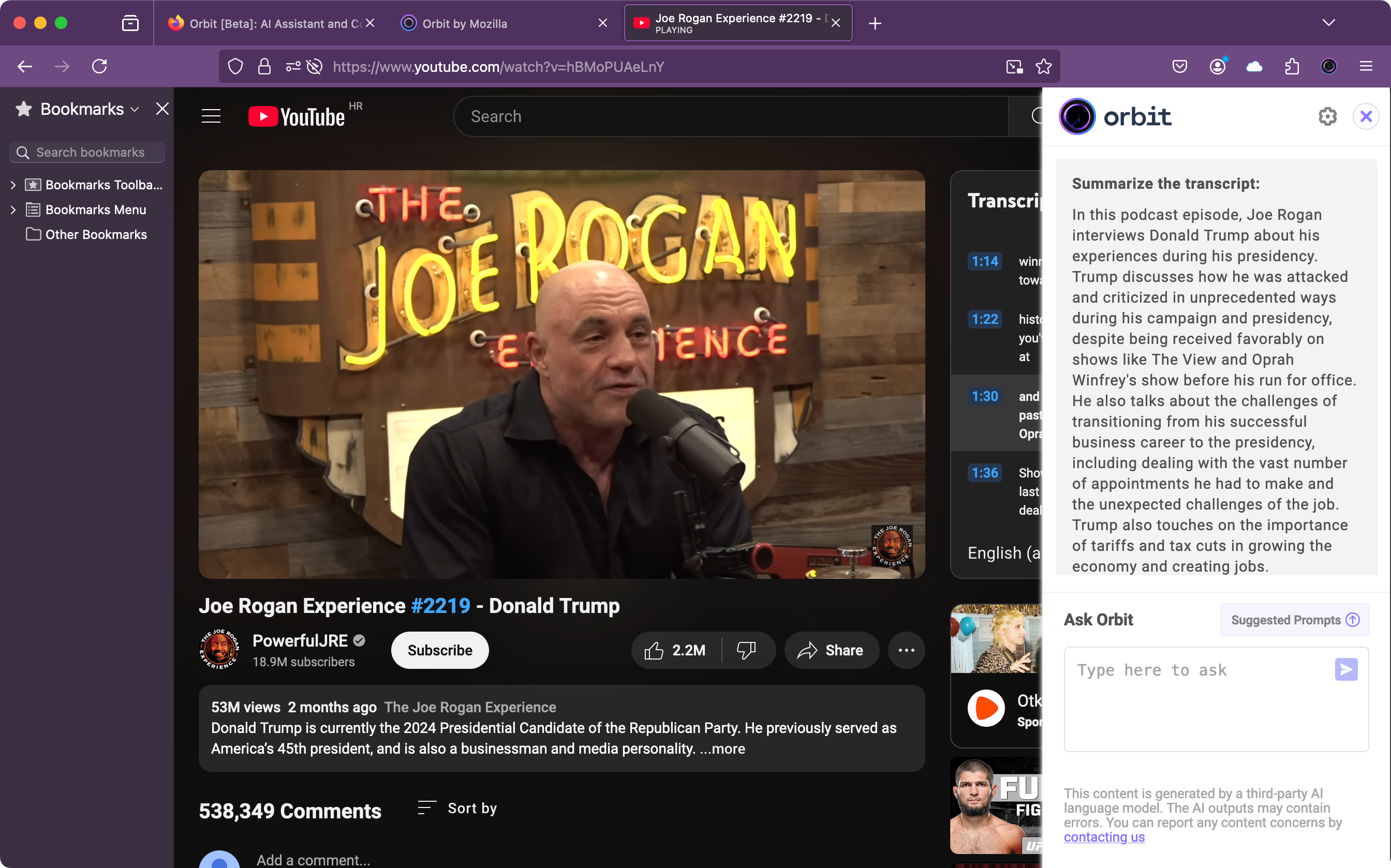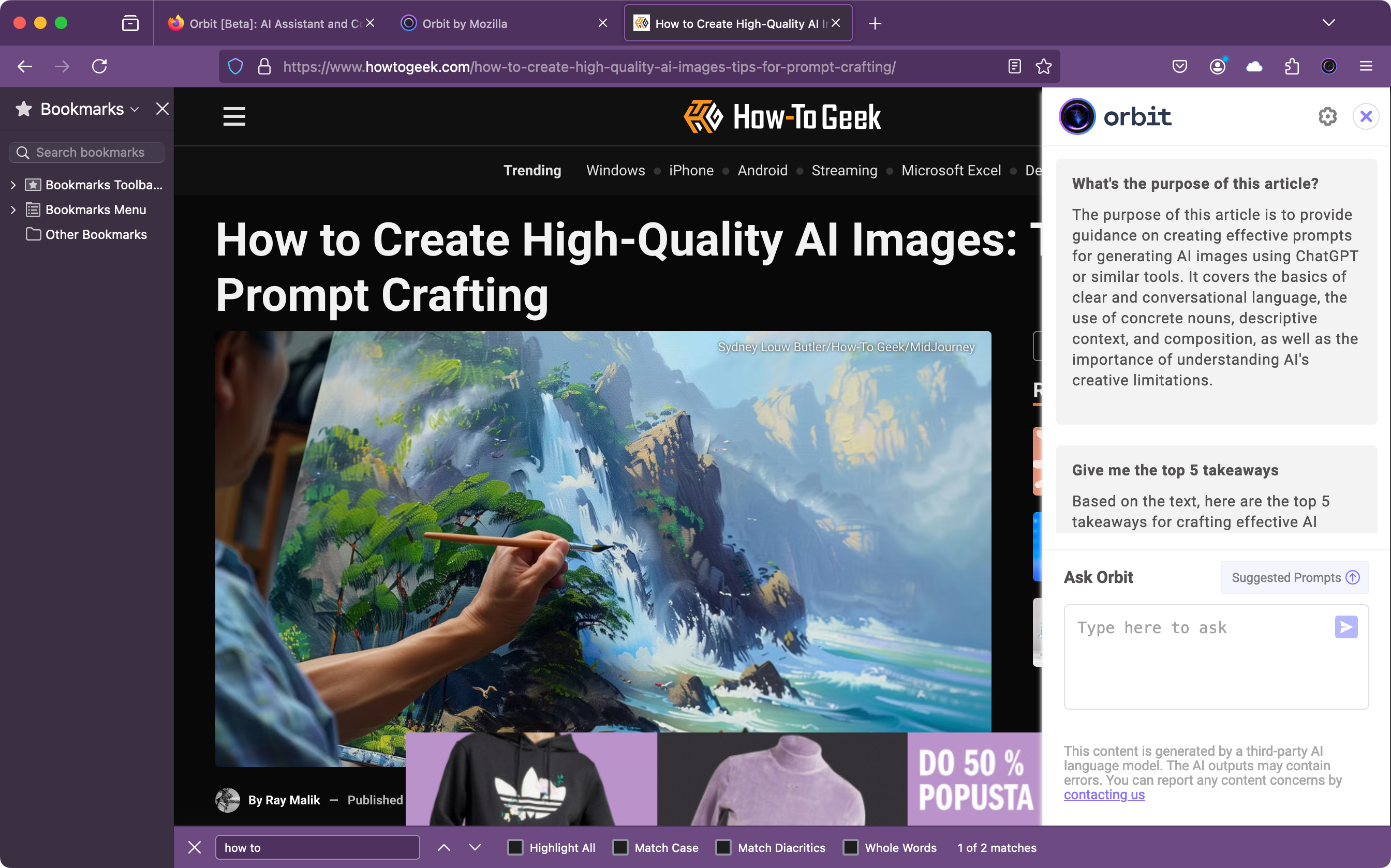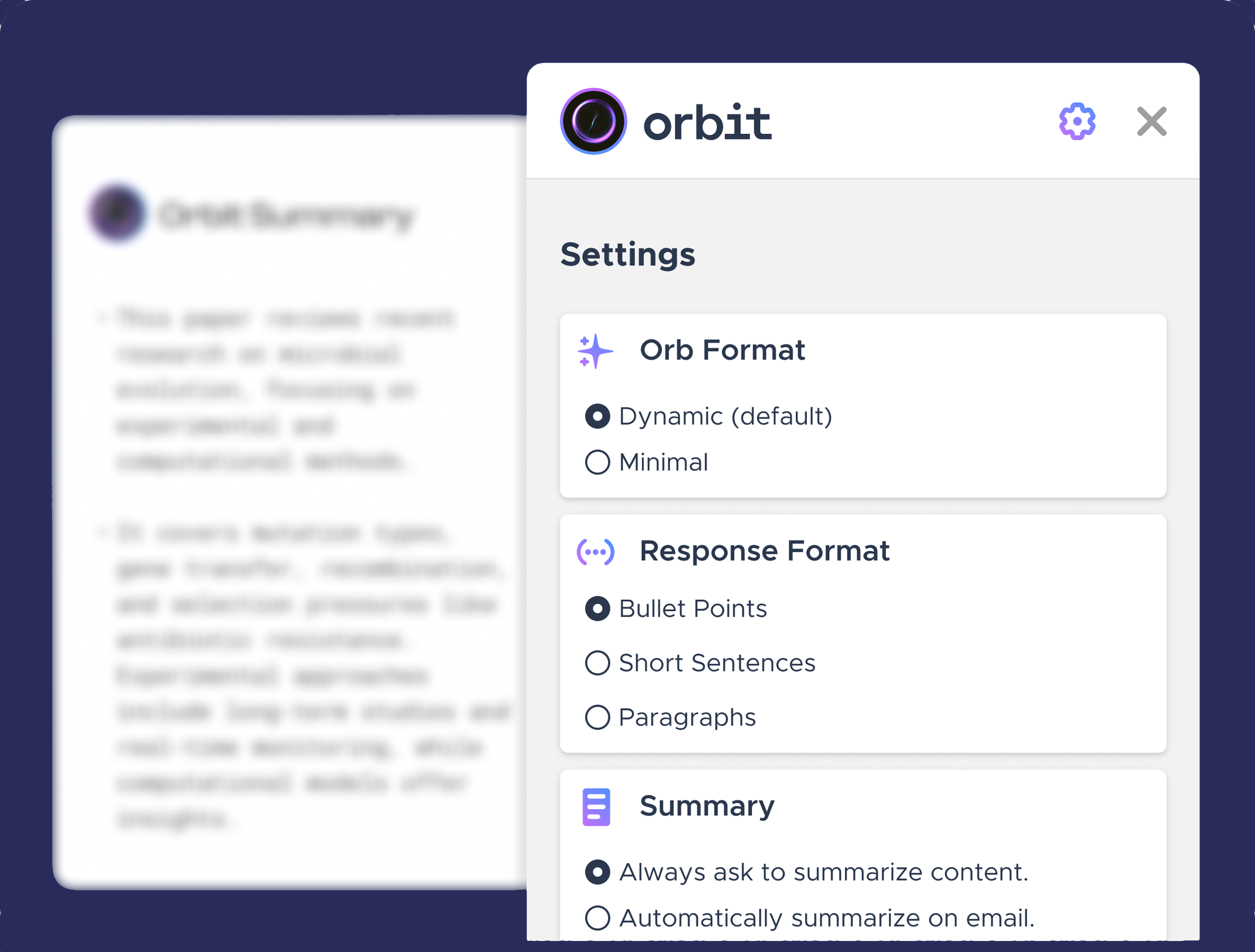Mozilla has released an AI-powered assistant extension for its Firefox browser, dubbed Orbit, which can summarize long emails, documents, web articles, and videos.
You can install the extensions from the Firefox add-ons website free of charge. Keep in mind that Orbit is currently in beta and only works in the Firefox browser on Windows, macOS, and Linux. Upon installation, you must agree to “essential data collection” to use Orbit. When Orbit is active, you’ll see a small circular Orbit button that floats above web content. Hit the button, and you’ll be presented with three options: Summarize, Ask Orbit, and Settings.
This isn’t Firefox’s first dip into generative AI. Firefox 126 added support for NVIDIA’s AI video upscaling, and Firefox’s newer translation feature uses on-device AI models. Mozilla is also experimenting with local AI models for generating alt text in PDF images, to improve accessibility for people with impaired vision.
Orbit works across major websites and all you have to do is visit a page and choose Summarize to get a detailed summary of a story. If you open a long email in Gmail’s web interface, for example, Orbit will distill the message to its essence and give you a summary. Orbit can even summarize long videos as text, which works pretty well most of the time.
Don’t expect miracles, though. Large language models (LLM) have limits, and attempting to summarize Joe Rogan’s nearly three-hour interview with Donald Trump on YouTube has yielded a warning that the video is too long. I did get my video summary, but it only described the contents of the interview in very broad strokes, without providing deeper insight. I’ve also tried Orbit on Vimeo and Twitch, and it worked as advertised.
The Ask Orbit option swooshes a chatbot-style interface into view for asking questions about the page you’re currently on. I’ve used it to summarize our article about prompt crafting for high-quality AI image generation and request five key takeaways.
Needless to say, I was pleased with the results. LLMs rule when it comes to text summarization and Orbit (powered by a Mistral LLM) is no exception. I’ve also had no complaints with Orbit’s summaries of various blog posts, news articles, and Wikipedia entries. However, you cannot use Orbit as a standalone chatbot—it only answers questions that are relevant to the webpage you’re viewing.
You can customize some of Orbit’s capabilities by choosing the Settings option. Here, you can choose between bullet points, paragraphs, or short sentences as your preferred response format, whether you’d like Orbit to automatically summarize email, YouTube, or both, etc. If you don’t like Orbit’s floating button, you can hide it entirely or minimize it. You can also drag the button around if it obfuscates important web content.
Orbit doesn’t require an account to use, and the feature does not save summaries in the cloud. “Orbit summaries are only available on the page that you are actually on,” Mozilla notes. “As soon as you navigate away from that page, Orbit erases the session.”
Your queries are never shared with Mistral and Mozilla claims it doesn’t use your data for AI training. Orbit is built in a modular fashion to enable Mozilla to swap out LLMs if a better open-source model comes along. “The tradeoff of not sharing user data with the model is that we cannot influence the model or train it,” the nonprofit said.
Orbit is currently restricted to English queries and summaries. Download Orbit from the Firefox add-ons page to give it a try and see how it fits into your workflow.
Source: Mozilla via OMG Ubuntu



